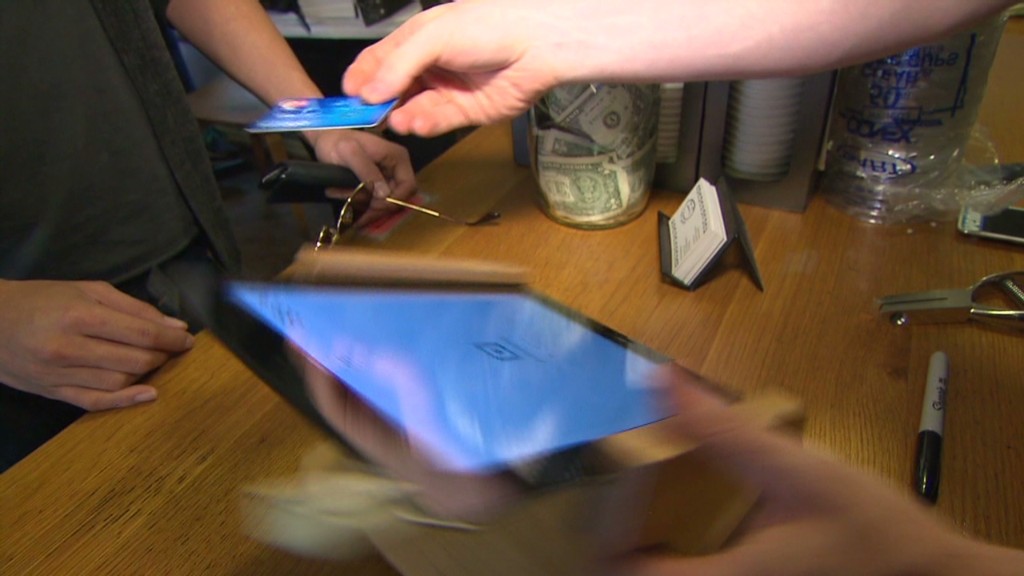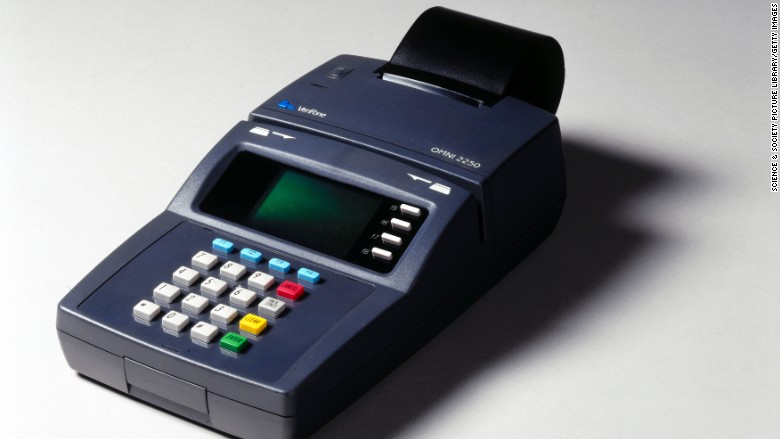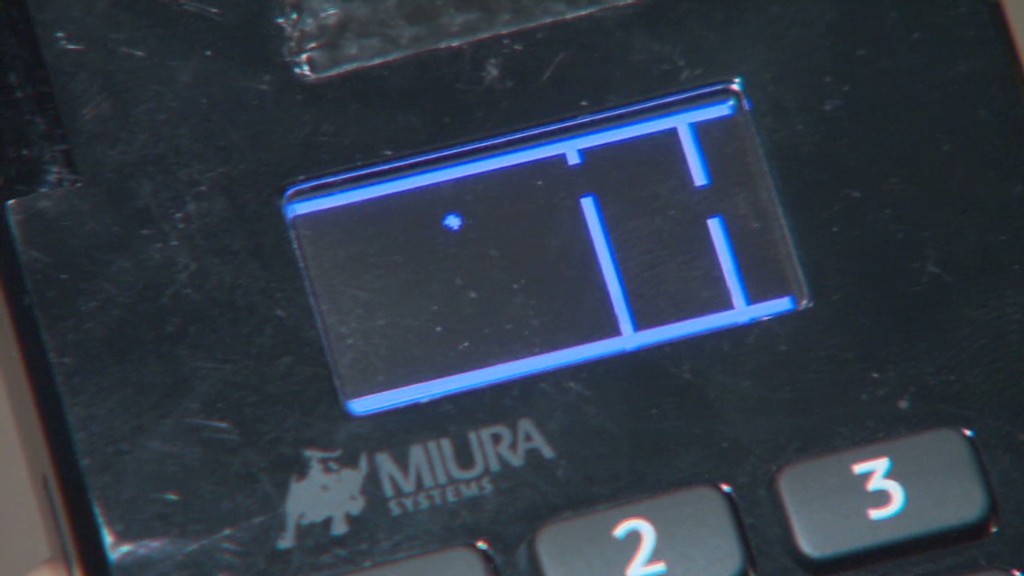
Get completely ready for a facepalm: 90% of credit history card readers at this time use the very same password.
The passcode, set by default on credit score card equipment considering the fact that 1990, is quickly found with a fast Google searach and has been uncovered for so extensive there is no sense in attempting to cover it. It is both 166816 or Z66816, dependent on the device.
With that, an attacker can attain comprehensive regulate of a store’s credit card readers, most likely allowing them to hack into the machines and steal customers’ payment data (believe the Target (TGT) and Property Depot (High definition) hacks all over once more). No speculate major shops continue to keep losing your credit rating card details to hackers. Security is a joke.
This hottest discovery arrives from researchers at Trustwave, a cybersecurity organization.
Administrative accessibility can be used to infect machines with malware that steals credit card knowledge, defined Trustwave executive Charles Henderson. He in depth his conclusions at past week’s RSA cybersecurity meeting in San Francisco at a presentation identified as “That Level of Sale is a PoS.”
Take this CNN quiz — find out what hackers know about you
The trouble stems from a sport of warm potato. Gadget makers promote devices to special distributors. These sellers offer them to shops. But no one particular thinks it is their work to update the grasp code, Henderson told CNNMoney.
“No a person is transforming the password when they set this up for the initially time all people thinks the security of their point-of-sale is anyone else’s accountability,” Henderson said. “We’re producing it very easy for criminals.”
Trustwave examined the credit rating card terminals at a lot more than 120 suppliers nationwide. That involves key clothes and electronics shops, as properly as area retail chains. No specific stores had been named.
The huge greater part of devices ended up made by Verifone (Pay). But the similar concern is present for all major terminal makers, Trustwave said.

A spokesman for Verifone mentioned that a password by yourself isn’t really adequate to infect devices with malware. The enterprise claimed, until finally now, it “has not witnessed any assaults on the security of its terminals centered on default passwords.”
Just in scenario, though, Verifone reported retailers are “strongly encouraged to alter the default password.” And today, new Verifone equipment come with a password that expires.
In any situation, the fault lies with suppliers and their particular suppliers. It truly is like property Wi-Fi. If you obtain a home Wi-Fi router, it really is up to you to improve the default passcode. Shops ought to be securing their own devices. And device resellers should really be aiding them do it.
Trustwave, which assists protect vendors from hackers, reported that trying to keep credit score card devices harmless is very low on a store’s listing of priorities.
“Companies expend more income deciding on the colour of the place-of-sale than securing it,” Henderson reported.
This problem reinforces the summary produced in a latest Verizon cybersecurity report: that shops get hacked simply because they are lazy.
The default password issue is a serious issue. Retail laptop or computer networks get exposed to pc viruses all the time. Take into consideration one scenario Henderson investigated a short while ago. A awful keystroke-logging spy application finished up on the computer a shop takes advantage of to approach credit card transactions. It turns out staff members had rigged it to participate in a pirated edition of Guitar Hero, and unintentionally downloaded the malware.
“It shows you the stage of obtain that a large amount of men and women have to the issue-of-sale setting,” he explained. “Frankly, it is really not as locked down as it really should be.”

CNNMoney (San Francisco) First revealed April 29, 2015: 9:07 AM ET




More Stories
Physical Security Of Laptops With Computer Locks
About Treadmill Cushioning and Treadmill Shock Absorption Technology
What Is Computer Science and Engineering?